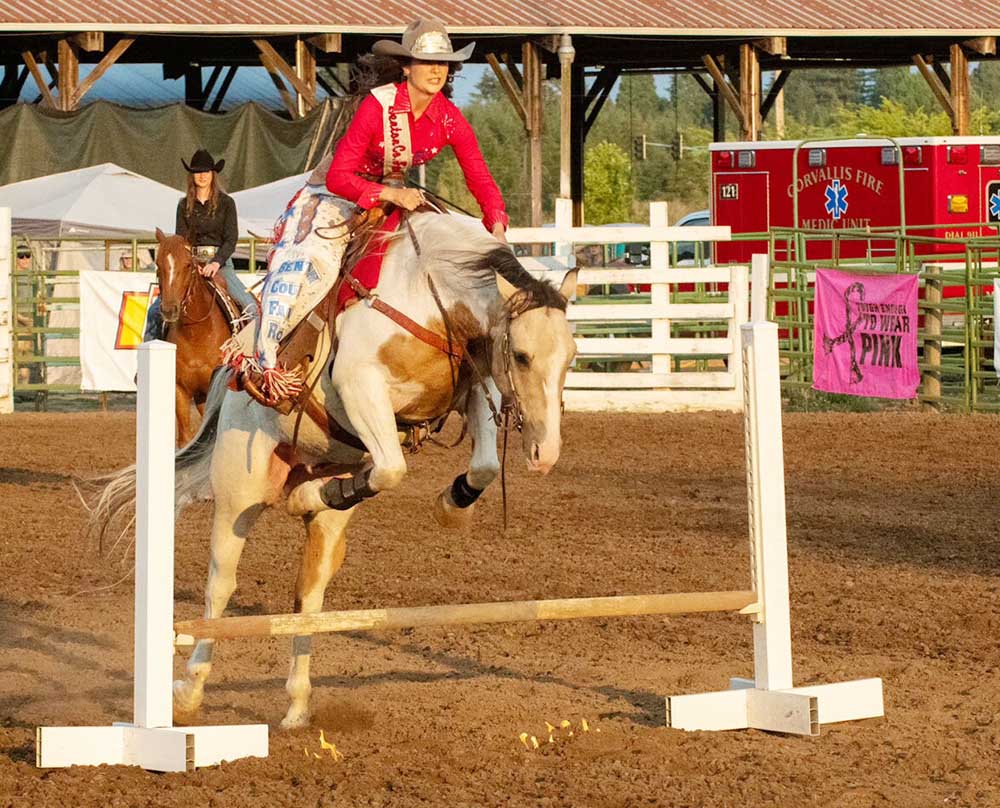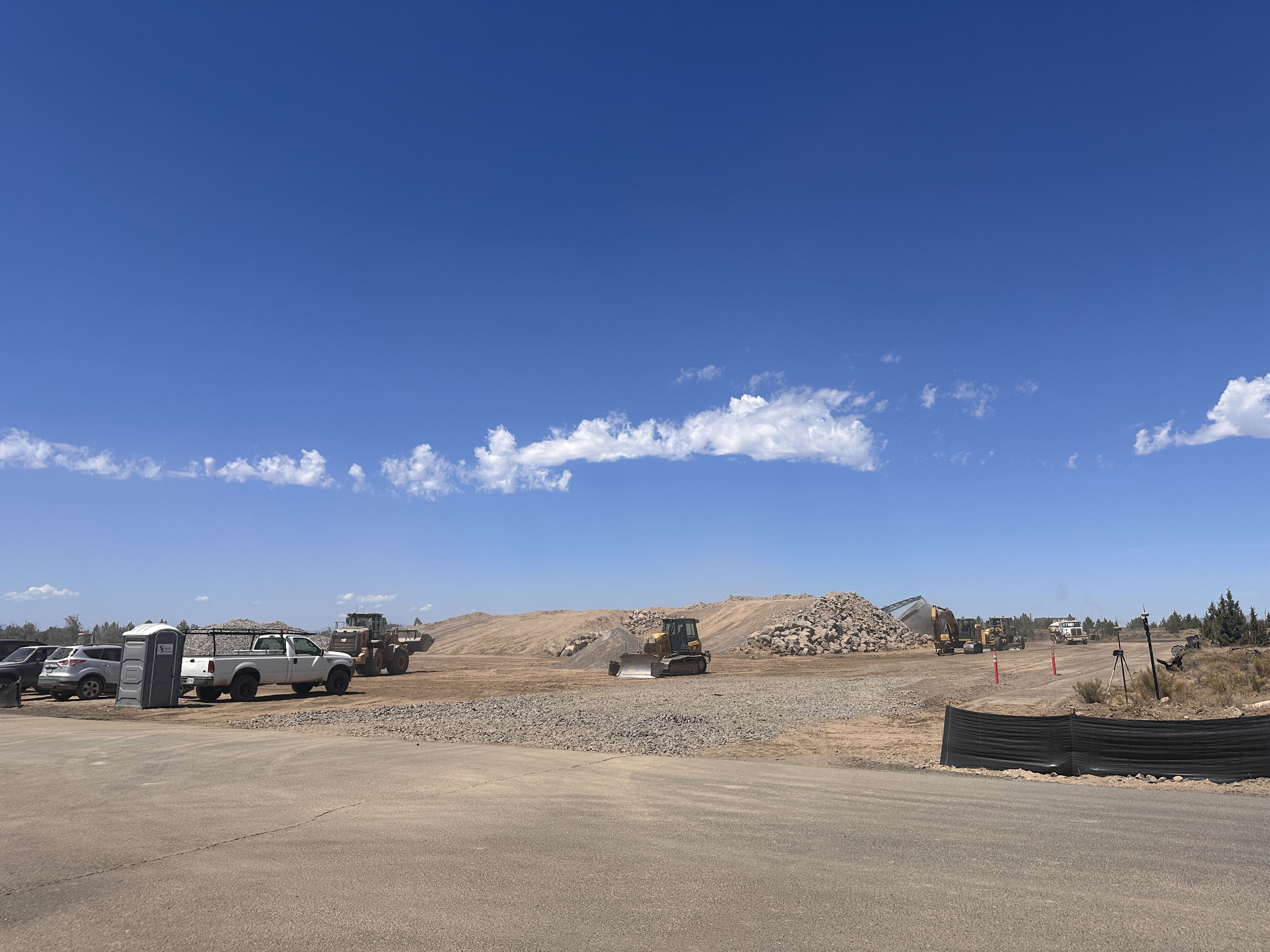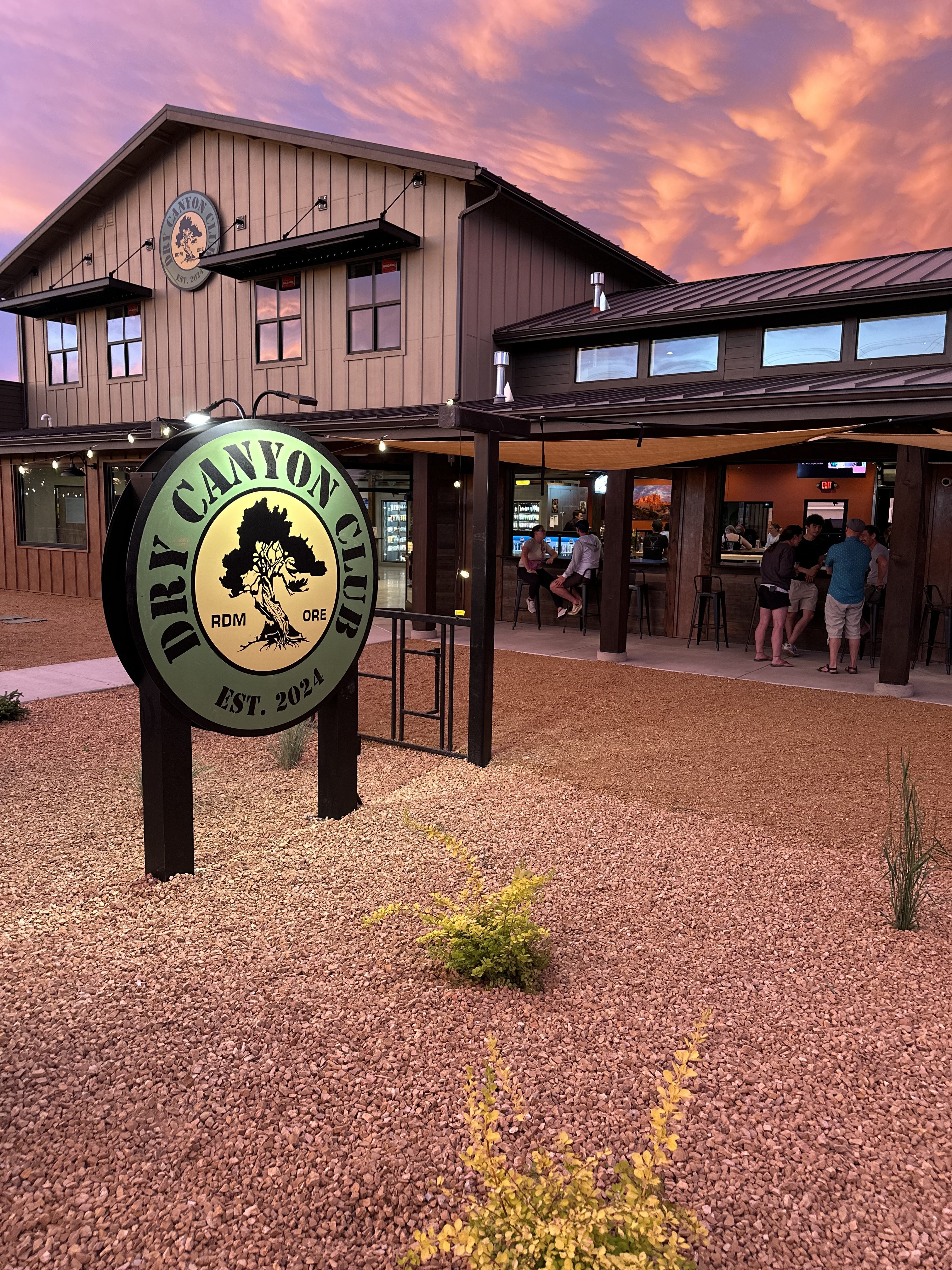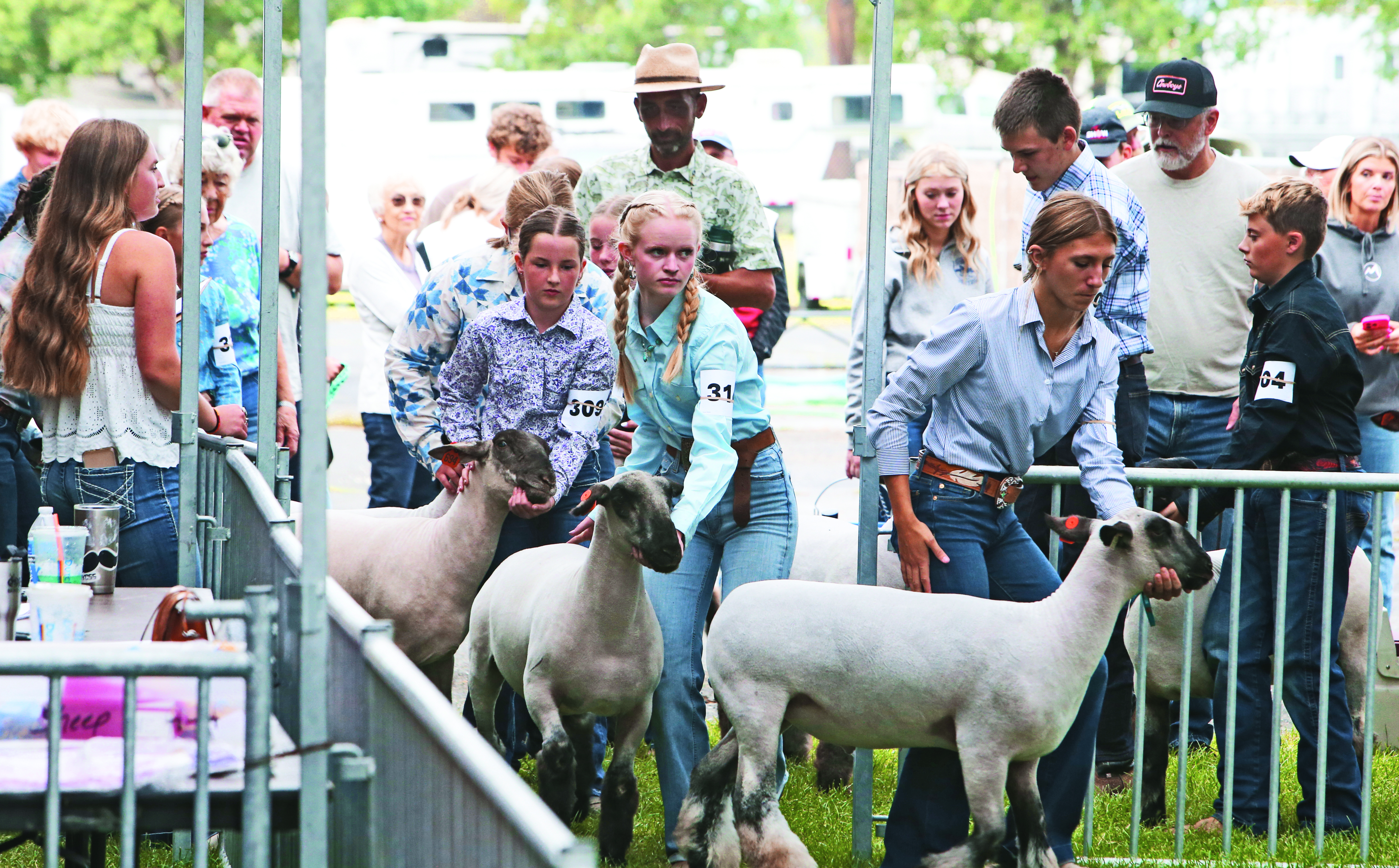Rodeo queen advocates for Oregon mustangs
Published 10:00 am Tuesday, August 27, 2024

- Naomi Bailey jumps a hurdle with her mustang, Ochoco.
Being the Benton County Fair and Rodeo Queen is no easy feat. Between a packed schedule of community appearances, horse-riding and plenty of training, rodeo queens have their work cut out for them.
Trending
Naomi Bailey, this year’s title-holder, can add jumping over fire to the list. She and her horse, a formerly wild mustang named Ochoco, did just that at the rodeo in Corvallis, Ore., where she performed from July 31 to Aug. 2. Bailey said she wanted to do something unusual for her performance.
“Most rodeo queens don’t exactly jump over fire,” Bailey said. “But I wanted to display just how truly versatile mustangs are.”
Bailey grew up on a small cattle ranch near Newberg, Ore., and said she’s been around horses most of her life. Now an undergraduate studying biology at the Oregon State University, she hopes to become a production animal veterinarian working in the Willamette Valley.
Trending
Three years ago, she met Ochoco through Teens and Oregon Mustangs, a nonprofit organization that trains wild horses and burros to prepare them for adoption. The 100-day training program culminates with a horse auction and adoption over the Labor Day weekend.
Potential adopters have to be approved bidders through a Bureau of Land Management application process. For a fee, the program allows trainers like Bailey to adopt the horses themselves, if they so choose.
“Training a mustang is not an easy task,” Bailey said. “But at the end of the day, the bonds you can create with a feral horse versus a domestic horse are like none other.”
Erica FitzGerald founded the program in 2009 after working with wild mustangs for the first time.
Initially just 10 teenagers working with yearlings, the program has since grown to over 110 trainers across six age groups, including adults and seniors. Roughly 200 horses and burros were adopted through the program in 2023, according to FitzGerald.
“If I had learned as much from a wild horse in my teen years as I learned as an adult, think about how much further ahead I would be in my training,” FitzGerald said.
The program lost its funding last year, FitzGerald said, after the BLM ended its partnership with the Mustang Heritage Foundation — which provided grants for individuals to train wild mustangs. Now, the program is relying heavily on donations and community support.
After Bailey and Ochoco performed, several teenagers in the program performed with their mustangs, displaying behaviors like bowing, ponying and standing on horseback.
Bailey said the displays — including the fire-jumping — came from her desire to promote the program and the breed to the public.
“Pushing for wild mustangs is important to me, and there are solutions beyond just cutting them up or letting them starve, or shipping them off to Canada or Mexico,” Bailey said.








